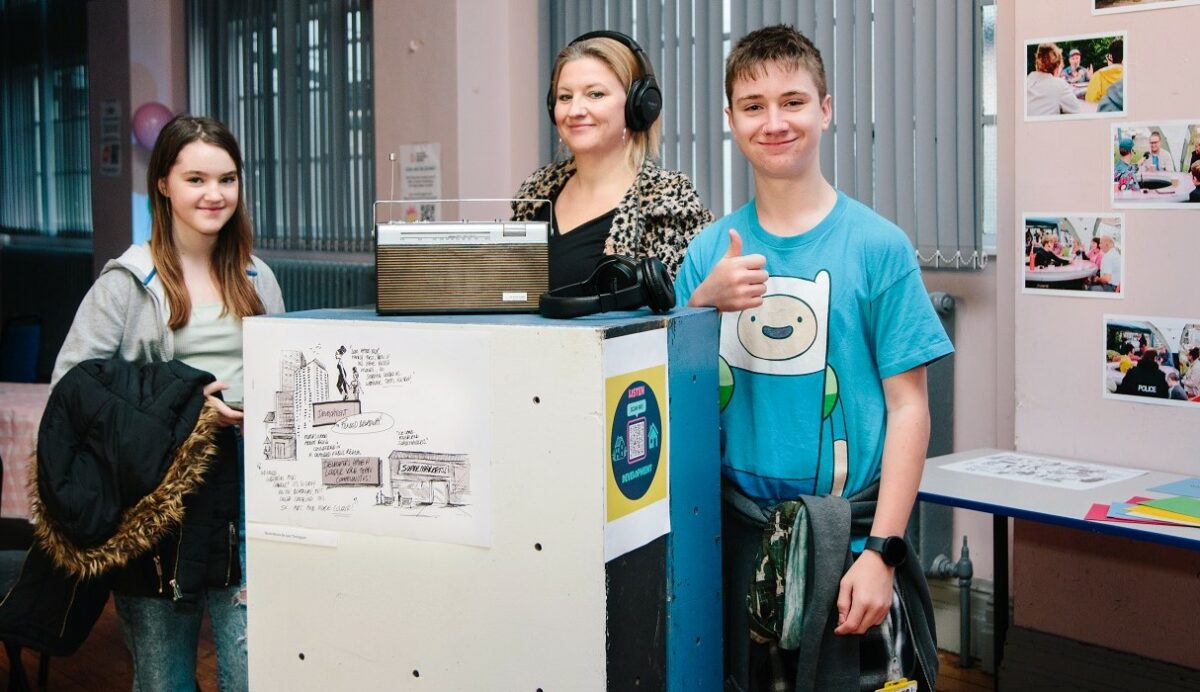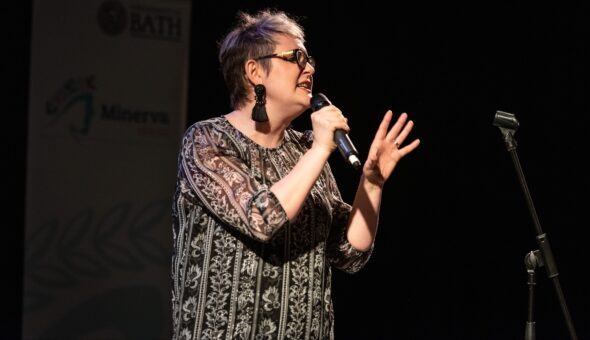If you’re interested in youth involvement in research, check out these films co-created by young people and researchers about their experiences of being part of a research project.
Involving people in research
People can be involved in many different ways throughout the research lifecycle. When it comes to health research, there is an established practice known as Patient and Public Involvement and Engagement (PPIE). PPIE is where people share their views and experiences to guide and inform how research is designed, carried out, shared, and adopted. Research is done ‘with’ or ‘by’ publics rather than ‘to’, ‘about’ or ‘for’ them.
Youth involvement in research
As part of our ParticipatoryResearch@Bath project, we have been supporting a range of colleagues to develop their practice of public involvement in research. Over the last year, we’ve been working closely with researchers in the Department of Psychology to deliver an Enhancing Research Culture-funded project focused on encouraging and increasing young people’s involvement in psychology research at the University.
What emerged from this project was enthusiasm for increasing young people’s involvement beyond their roles as research participants. However, colleagues generally felt unsure of where to start and how to meaningfully involve young people in research.
Co-creating a resource
To meet this need, the team, led by Maria Loades and drawing on her significant experience of youth involvement, decided to create a series of 'how-to' films that covered a range of topics colleagues should consider when thinking about involving young people in research.
Staying true to the principles of participation, it was agreed that these films should be co-created with young people.
We worked with colleagues at MindTech (a national centre focussing on the development, adoption and evaluation of new technologies for mental healthcare at the University of Nottingham), to co-create them with young people (Jack Shaw and Ursula Parrish) from their Digital Youth’s young people’s group and researchers.
The process was youth-led, with Jack and Ursula responsible for creating video treatments, storyboards, filming, and editing.
The films feature University of Bath Psychology researchers, including Maria, Nina Higson-Sweeney and Megan Williams alongside researchers and young people from MindTech. Each film provides guidance and advice for involving young people in research and captures some of the brilliant PPI work already taking place in Bath and Nottingham.
These films were designed to be accessible, inspiring, and fun, reducing the perceived barriers to involving young people as co-researchers. We hope they will prove a useful and engaging tool in getting started with involving young people in your research. Check them out below.
Film one - what is youth involvement, and why is it important?
“If you’re approaching it with the principles of equity, shared understanding and being meaningful, then you’re going a long way in the right direction” (Researcher, MindTech)
This film considers why PPI is important to both researchers and young people and how to get started with involving young people as co-researchers. Researchers and young people discuss how to ensure young people feel valued, their voices feel heard, and they gain a sense of purpose from their involvement.
Film two - how to set up a youth involvement group
“Bringing young people together in these settings really helps to foster a lot of creative energy…it’s so different to a standard email chain which I find, as someone who is neurodivergent, mentally taxing compared to a…session where young people are planning an activity, really interacting with researchers and fully immersed in their projects” (Young person, Digital Youth at MindTech)
This film looks at how to set up and plan sessions with young people that are engaging and enjoyable but also organised and flexible. Researchers discuss the importance of working with young people to create wellness plans and ensuring that both young people and researchers set out agreed principles and shared expectations of the research.
Film three - what do I need to consider when involving young people in research?
“The key thing is about being open and honest about what you’re going to be doing, what kind of questions you’re going to ask, so we give people the chance to think about that beforehand…creating a really clear, kind, responsive and comfortable environment right from the beginning” (Researcher, MindTech)
This film considers the importance of creating a safe space and being open and honest with young people from the outset. Researchers and young people discuss the need to value the input and time of young people (payment/skills training) and provide regular updates demonstrating how their ideas and contributions are shaping the research project. Power differentials can be minimised through developing a respectful relationship with young people, ensuring their voices are heard.
Further resources
NIHR - Involving children and young people as advisors in research. Top tips and essential key issues for researchers (2021)
NIHR – A guide to working effectively with public contributors (2023)
Digital Youth with Sprouting Minds - Reflections on Young People’s Advisory Groups (YPAGs); payment, emotional labour, legitimacy and some take homes
Co-Production Collective – What is co-production
Come along to a get-together
Are you doing/or are you interested in doing participatory research?
If so, come and join our sharing practice get-together, an informal and safe space to share with peers and reflect on your practice. We’re holding our next get-together (includes a free lunch) during Research Focus week on Tuesday 14 May, 12.30-1.30, 1WN, room 3.10. We are hoping to create a community of practice where Bath researchers can share their stories, methodologies, and ethics approach. Maria Loades in Psychology will discuss her journey with participatory research and how she has got to the point she is at now in her practice.
We welcome researchers from all disciplines and Faculties/School of Management to join us. This meeting will be hybrid, so you are welcome to join online if you aren’t able to be on campus. If you’re interested in attending, then please email Suzi Wright (Project Manager – ParticipatoryResearch@Bath) to confirm your place.
For more information or if you’d like to chat, then please get in touch with the Public Engagement Unit public-engagement@bath.ac.uk
Suzi Wright is ParticipatoryResearch@Bath Project Manager at the University of Bath.
Respond


